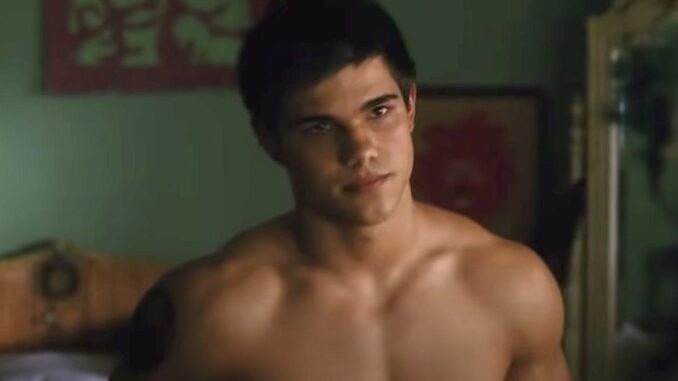
The Wolf’s Howl: Jacob Black’s Return and the Resurfacing of a Fandom’s Heart
The internet, a beast of a thousand heads and an insatiable memory, often stirs with the ghosts of pop culture past. But every so often, a whisper, a tremor, then a full-throated roar signals something more profound: a beloved figure, long dormant, has returned to the collective consciousness. Such was the seismic event when news of Taylor Lautner, the actor behind the iconic werewolf Jacob Black, re-entered the spotlight, igniting a fervent excitement among Twilight fans after many years of his relative absence. It wasn’t just a celebrity sighting; it was a portal to a specific moment in time, a rediscovery of a character who carved out a fiercely loyal corner in millions of hearts.
For a generation, Jacob Black wasn’t just a character in a book or a movie; he was an emblem. He was the steadfast friend, the passionate protector, the earnest underdog in a fantastical love triangle that polarized and enthralled. Team Jacob vs. Team Edward was more than a debate; it was a declaration of allegiance, a mirror reflecting whether one valued fiery loyalty and sun-drenched warmth, or enigmatic mystery and moonlit danger. Taylor Lautner, with his earnest eyes, perpetually exasperated expressions, and astonishing physical transformation, embodied the raw, untamed spirit of the Quileute shapeshifter. He was Jacob, and when the Twilight Saga concluded, the character, and to a degree the actor’s intense mainstream visibility, receded, like a wolf melting back into the forest shadows.
Years passed. The dust settled on the cinematic saga, replaced by new franchises, new heartthrobs, new fandoms. Then, a photo. An interview. A red carpet appearance where a visibly matured, confident Lautner, no longer just the earnest teenager, graced the public eye. And with it, the dormant embers of “Team Jacob” didn’t just flicker; they burst into a roaring blaze. The excitement wasn’t merely about seeing an actor who had aged gracefully; it was about the sudden, visceral reconnection to a narrative, a time, and a feeling that had been shelved but never truly forgotten.
This resurgence illustrates several profound truths about fandom and pop culture. Firstly, it speaks to the enduring power of nostalgia. For countless fans, Jacob Black represents a specific epoch of their lives – perhaps their teenage years, fraught with first crushes, dramatic friendships, and the intoxicating escapism of supernatural romance. Lautner’s return acts as a time machine, instantly transporting them back to slumber parties dissecting plot points, or heated cafeteria debates over Bella’s choice. The excitement is a comfort, a joyous recognition of a part of their past that shaped them.
Secondly, it highlights the depth of character connection. Jacob wasn’t just a plot device; he was emotionally resonant. His unrequited love, his fierce protection of Bella, his struggle with his own monstrous nature – these elements forged a bond with viewers that transcended the screen. Taylor Lautner’s portrayal imbued Jacob with a vulnerability and strength that made him deeply human, despite his wolfish tendencies. His perceived “return” to the public eye, even if not in character, validates that enduring connection, reassuring fans that the character they loved still holds a place in the cultural conversation.
Finally, the sheer ferocity of the online reaction – the memes, the GIFs, the trending hashtags, the heartfelt declarations of renewed devotion – demonstrates the unique architecture of modern fandom. These communities, once confined to forums and conventions, now thrive instantly and globally on social media. The shared excitement creates a powerful, amplifying echo chamber where individual nostalgia transforms into a collective celebration. It’s a collective gasp, a unified cheer, illustrating how deeply these fictional worlds and their inhabitants become woven into the fabric of our personal and shared identities.
The return of Taylor Lautner, resonating with the spirit of Jacob Black, is more than just a celebrity moment; it’s a cultural phenomenon. It’s a joyous jolt, a heartwarming embrace of a past self, and a testament to the beautiful, tenacious heart of fandom. It illustrates how some stories, and the characters who inhabit them, transcend the constraints of time and narrative endings, patiently waiting for the moment to howl once more and remind us that some wolves, indeed, never truly fade into the shadows.
